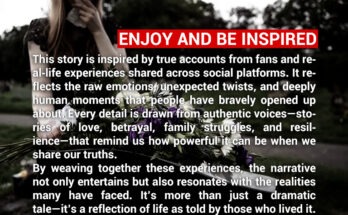For years, I thrived working remotely. I was productive, focused, and finally had a healthy work-life balance. So when my company announced a mandatory return to the office, I pushed back. I explained how remote work had improved my performance and mental health. I wasn’t trying to be difficult—I just didn’t want to lose the life I’d built. But HR wasn’t interested in compromise. They insisted it was non-negotiable. I stood my ground, thinking I had leverage after years of loyal service. That’s when they dropped the bombshell.
HR informed me that my role had already been restructured. Quietly, without warning, they’d hired someone new to take over my responsibilities—someone who was willing to work in-office. I was stunned. I’d been left out of the loop, replaced while still employed. They said I could apply for a different position, but it felt like a slap in the face. I wasn’t just being asked to return—I was being pushed out. My refusal had triggered a decision they’d already made behind closed doors.
I felt betrayed. I’d given this company my best years, adapted through every challenge, and now I was being discarded for wanting to protect my well-being. I asked why I hadn’t been consulted. HR said they assumed I’d “moved on mentally” from the team. That hurt more than I expected. I realized then that remote workers were being treated as disposable—out of sight, out of mind. My loyalty hadn’t mattered. Only my physical presence did.
I took a few days to process everything. Then I made a decision. I declined the offer to reapply and submitted my resignation. I wasn’t going to beg for scraps from a company that didn’t value transparency or respect. I started freelancing, using the skills I’d honed over years of remote work. It was scary at first, but liberating. I built my own schedule, chose my clients, and finally felt in control of my career again.
Ironically, some of my former colleagues reached out later, saying they were also unhappy with the return-to-office policy. A few even asked for advice on transitioning to freelance work. I realized I wasn’t alone. The shift to remote work had changed people—and companies weren’t ready to honor that change. But I was. I’d lost a job, yes, but I’d gained clarity, freedom, and a renewed sense of purpose.
So no, I didn’t go back to the office. And yes, HR blindsided me. But in the end, their bombshell became my breakthrough. Sometimes, the door that closes isn’t a punishment—it’s a push toward something better.


